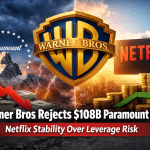Klarna made a splash on Wall Street, briefly valuing the Swedish fintech giant at over $19 billion on its U.S. debut.
Klarna's initial public offering (IPO) on the New York Stock Exchange marked a significant moment for the Swedish fintech company, known for its buy-now, pay-later (BNPL) services. Shares opened at $52, a 30% increase from the $40 IPO price, valuing the company at approximately $19.65 billion. However, by the end of the trading day, shares settled at $45.82, bringing the company's valuation down to around $17 billion according to Barrons.
IPO Details and Market Reception
Klarna raised $1.37 billion by selling 34.3 million shares, representing about 9% of its outstanding shares according to Investopedia. The IPO was priced at $40 per share, and the stock's opening price of $52 was a positive indicator for investors. Despite the initial surge, the stock closed at $45.82, reflecting a 14.6% increase from the IPO price.

Wall Street, the epicenter of U.S. financial markets, where Klarna made its $19 billion IPO debut.
Financial Performance and Valuation Trends
Founded in 2005, Klarna has become a significant player in the fintech industry, with 93 million active users across 26 countries. In 2024, the company reported revenue of $2.8 billion, up 24% year-on-year. However, it also posted a net loss of $52 million in the second quarter of 2025, attributed to higher costs associated with its U.S. expansion.
Business Insider reports that at its peak in 2021, Klarna was valued at $45.6 billion. The current valuation of approximately $17 billion represents a significant decrease, reflecting the challenges and competition in the BNPL sector.
Other Stories You May Be Interested In:
Neymar and the Billion-Dollar Inheritance: Fact, Fiction, and What We Know
Why Winning a VMA Isn’t About the Cash — It’s About the Power
Strategic Shifts and Market Position
Klarna's CEO, Sebastian Siemiatkowski, has emphasized the company's ambition to evolve into a digital financial assistant, aiming to simplify various financial tasks for consumers. The company has been expanding its services beyond BNPL, including offering phone plans and other financial products.
Despite facing increased competition from companies like Affirm and PayPal, Klarna's strong brand recognition and established user base provide a solid foundation for its future growth. The company's ability to adapt and innovate will be crucial in maintaining its position in the competitive fintech landscape.

Klarna in action: multiple screens showcase the fintech’s buy-now, pay-later services and digital financial tools.
Klarna FAQs: People Also Ask
What is Klarna's business model?
Klarna operates primarily as a payment service provider, offering BNPL solutions that allow consumers to pay for purchases in installments. The company generates revenue by charging fees to merchants for processing transactions.
How does Klarna compare to its competitors?
Klarna faces competition from other BNPL providers like Affirm and traditional financial institutions like PayPal. While Klarna has a strong presence in Europe, it is working to expand its footprint in the U.S. market, where competition is intensifying.
What are the risks associated with Klarna's business model?
The BNPL model carries risks, including the potential for consumers to accumulate debt due to deferred payments. Additionally, regulatory scrutiny and economic downturns can impact consumer spending and, consequently, Klarna's revenue.
What are Klarna's plans for future growth?
Klarna aims to diversify its offerings by expanding into digital banking services and other financial products. The company is focusing on innovation and customer experience to drive growth and maintain its competitive edge.
Final Thoughts
Klarna's IPO represents a significant step in the company's journey, but the fluctuating valuation underscores the challenges in the fintech industry. As Klarna continues to adapt and innovate, its ability to navigate the competitive landscape and meet consumer needs will determine its long-term success.
Other Stories You May Be Interested In:
How Much Would Jeff Bezos Be Worth If He Never Divorced MacKenzie Scott?














